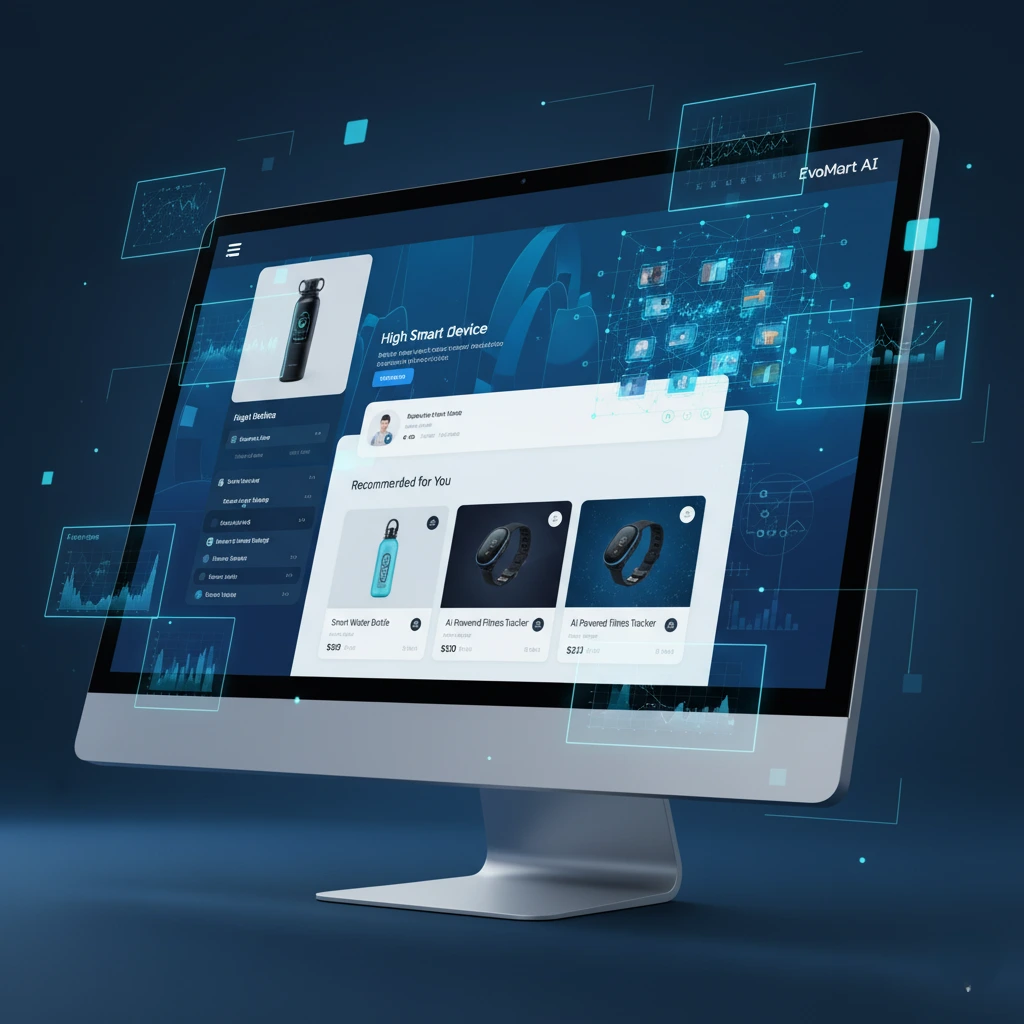Have you ever browsed an online store, and suddenly the perfect product appeared—something you didn’t even know you wanted, but ended up buying instantly? That’s not magic. It’s the power of AI product recommendations for online shopping.
In 2025, artificial intelligence is not just a tech buzzword—it’s one of the biggest drivers of e-commerce growth. From suggesting items based on past behavior to customizing homepages in real time, AI is transforming the way brands engage with shoppers.
Let’s explore how it works, why it matters, and how you can use it to boost your own online business.
🧠 What Are AI Product Recommendations?
AI (Artificial Intelligence) uses machine learning algorithms to analyze massive amounts of data—like your browsing habits, previous purchases, time spent on pages, or even what others with similar tastes have bought.
Based on this data, AI product recommendations for online shopping can suggest:
- Related products (“You might also like…”)
- Bestsellers based on your location
- Recently viewed or abandoned cart items
- Personalized discounts or bundles
It’s smarter than manual cross-selling and much faster.
🚀 Why It Works So Well
In traditional shopping, a salesperson might guide you toward the right choice. Online, AI plays that role—only better. Here’s why AI product recommendations for online shopping are so effective:
- Personalized Experience: No two customers are shown the same products. This customization increases engagement and trust.
- Faster Decisions: Shoppers don’t have to scroll endlessly. The best-fit items are already waiting for them.
- Higher Conversions: Suggested products that match customer intent have a much higher chance of being purchased.
- Increased Average Order Value (AOV): When customers are shown relevant add-ons or bundles, they’re more likely to spend more.
In fact, major brands like Amazon, Netflix, and Shopify stores report that over 30% of their revenue comes from AI-based recommendations.
🔍 Use Cases Across Industries
AI product recommendations for online shopping aren’t just for tech giants. They’re being used across every niche:
- Fashion: Recommending outfits based on style history or trends
- Electronics: Suggesting accessories or upgrades
- Beauty: Personalized skincare or makeup routines
- Grocery: Suggesting weekly reorders or seasonal products
Whether you’re a large online marketplace or a small niche Shopify store, AI can be integrated affordably using tools like:
- Shopify apps (LimeSpot, Wiser)
- WooCommerce plugins
- Custom solutions via APIs (like Amazon Personalize)
📈 The Future of AI in E-commerce
In 2025 and beyond, AI product recommendations for online shopping will evolve even further with:
- Voice commerce: Suggesting products via smart assistants like Alexa or Google Assistant
- Visual search: Recommending items based on images or screenshots
- Emotional AI: Detecting moods to adjust product suggestions accordingly
With shoppers expecting more personalization and less effort, businesses that adopt AI will stay ahead of the curve.
✅ Final Thought
If you’re running an online store and haven’t embraced AI product recommendations for online shopping, you’re leaving money on the table. Customers want a smooth, intuitive, and personalized experience—and AI delivers exactly that.
Investing in AI today is an investment in higher conversions, better customer loyalty, and smarter business growth.
❓Frequently Asked Questions
1. Are AI product recommendations only for big businesses like Amazon?
Answer:
No! Many small to mid-sized businesses now use affordable AI tools that integrate with platforms like Shopify, WooCommerce, and BigCommerce. You don’t need a massive tech team to benefit from AI.
2. Do AI recommendations really improve sales?
Answer:
Yes. Brands using AI product recommendations for online shopping often see a 10–30% increase in conversions and a higher average order value due to smarter upselling and cross-selling.
3. Is customer data safe when using AI for product recommendations?
Answer:
Reputable AI platforms follow strict data protection laws (like GDPR). Most tools use anonymized, behavior-based data rather than personal identifiers to make suggestions safely and securely.

Leave a Reply